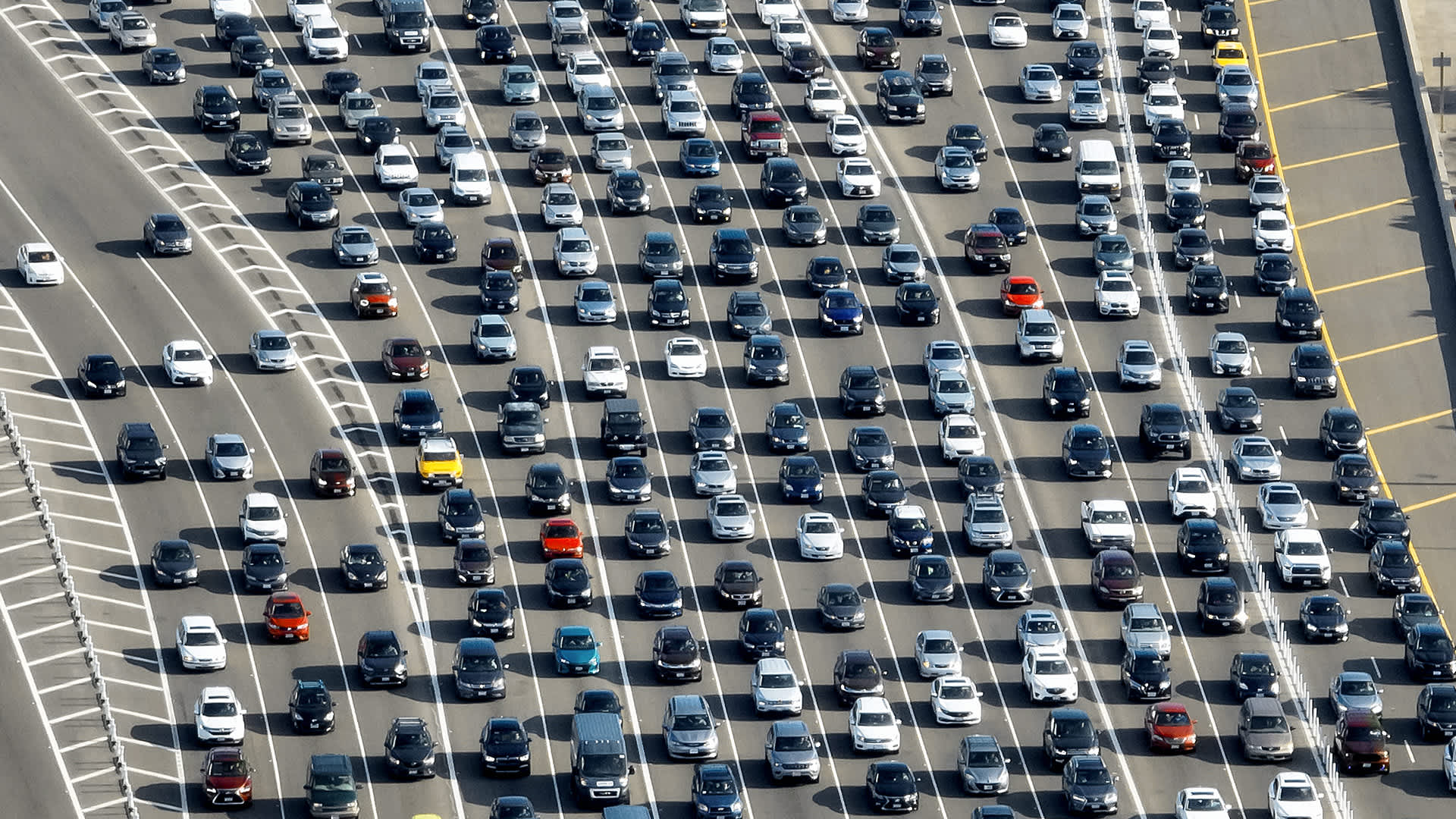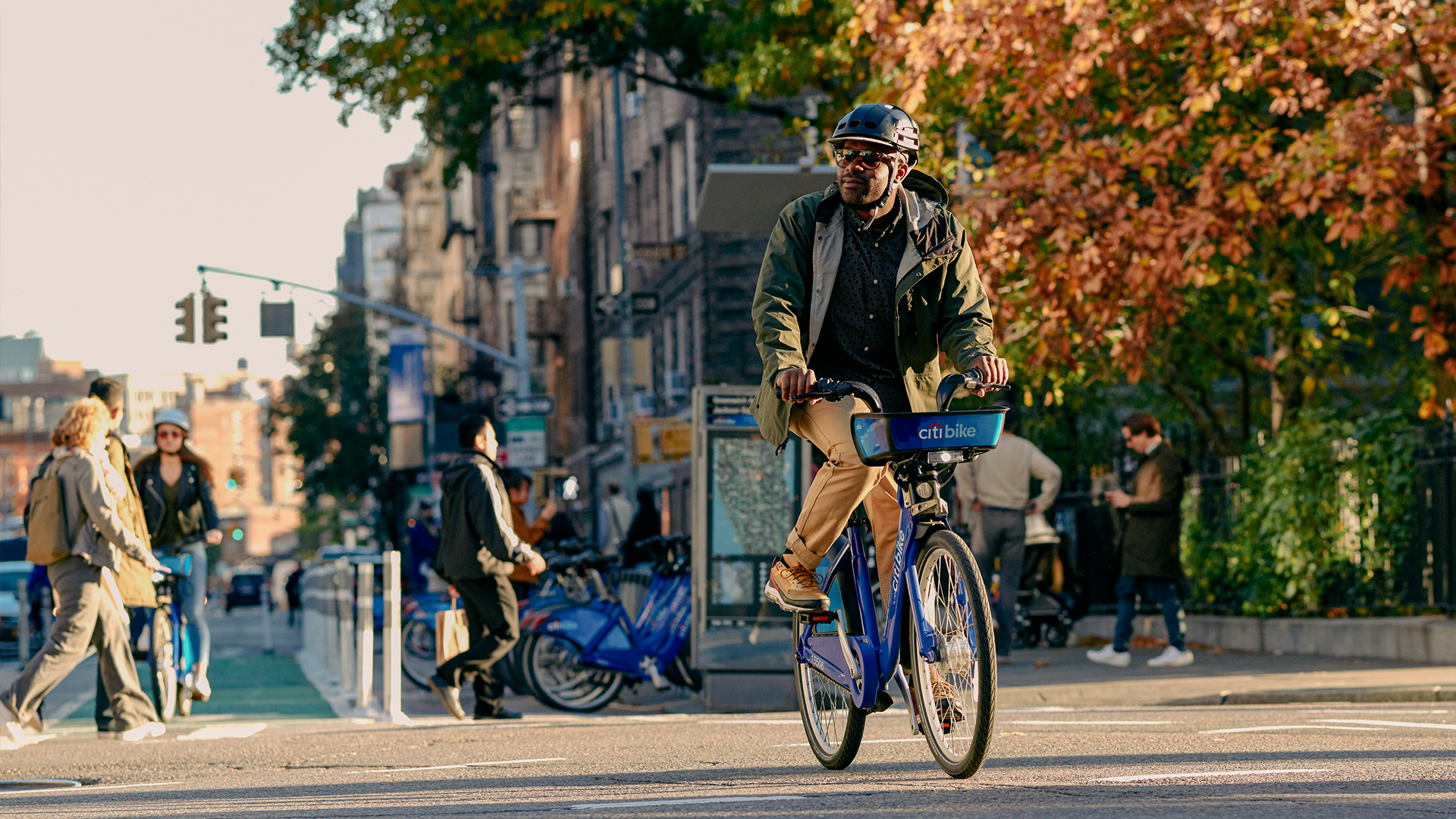
In the “before times,” commuting was as predictable as death or taxes. It was a nine-to-five world after all. But what’s the state of commuting now? To find out, we dug into our data, aggregating the million-plus Lyft rides to office buildings that have taken place during commuting hours (6 a.m. to 11 a.m.) this year. Here is a snapshot of what we learned about commuting to the office in 2023 so far, according to Lyft data.
The daily commute isn’t so daily anymore
Taking into account all Lyft commute rides to offices across the country, commuters are less likely to go into the office Mondays and Fridays. The visualization below plots the percentage of commutes by day of the week.
Thursday is the most popular day to go into the office, closely followed by Wednesday and then Tuesday. For riders who go into the office twice a week, Tuesday and Wednesday were preferred.

However, there are some local differences. If you live in San Francisco, chances are higher that you go into the office on Tuesdays. Meanwhile, commuters hailing from Washington, D.C., and Los Angeles prefer Wednesday. This is shown in the figure below, which plots each day of the typical Monday-to-Friday workweek, along with the percentage of commutes that occur that day for each city.

So it appears unanimous for all cities across our sample: Monday is the day when Americans are least likely to make it into the office.
In San Francisco, commuters almost equally skip out on Fridays. It seems this article in the San Francisco Chronicle last year, highlighting how “Thursday is the new Friday,” was right. But gold stars go to Miami and Phoenix; city-goers in both are more likely to go into the office Mondays and Fridays. Maybe it’s the lure of that sweet office AC…
Early birds vs. late risers
The majority of cities still commute to the office between 8:00 and 8:30 a.m., although there are some minor exceptions. Early-bird Phoenix starts its day before 8:00. Meanwhile, San Francisco commuters take a little extra time in the morning, not leaving until around 8:45.

What’s with Phoenix’s early start? The data suggests that riders tend to leave just a bit earlier in the hottest part of the year and later in the winter months. So commuters may be saving themselves a few minutes of sweating!

As impressive as go-get-’em Phoenix residents may be, special props go to commuters in New York City, Chicago, and Boston — all of whom are most likely to call their Lyft ride to work from a gym. Squeezing in a workout before they even start their day? You go, big-city try-hards!

Shortest and longest commutes
Commutes (like everything else) are bigger in Texas: Lyft rides within Texan cities travel the farthest to get to the office. This is shown in the scatterplot below, which compares the average length of a commute (in miles) to the average length of a commute (in minutes). Most notable is New York City, which boasts the longest commute time but shortest commute distance. Meanwhile, Phoenix and Baltimore win the race to the office.

And dividing distance by time gives an estimate of how fast each Lyft was going. Go, Dallas and Phoenix, go!

One group of morning commuters is missing from this analysis: Those who take a Lyft ride to a public-transit stop and continue the commute to the office from there. These are multimodal commuters, and they are most likely to live in New York City or San Francisco (and least likely to live in Houston or Phoenix).

So the state of commuting in 2023? It varies by state! But, interestingly, one city has consistently been at the top (or bottom) of the charts. If you’re looking to wake up bright and early and speedily go into the office daily, then Phoenix might just be the town for you.
And if you’re transit-loving and early-morning averse, the data is clear: Your commuting heart’s in San Francisco.


